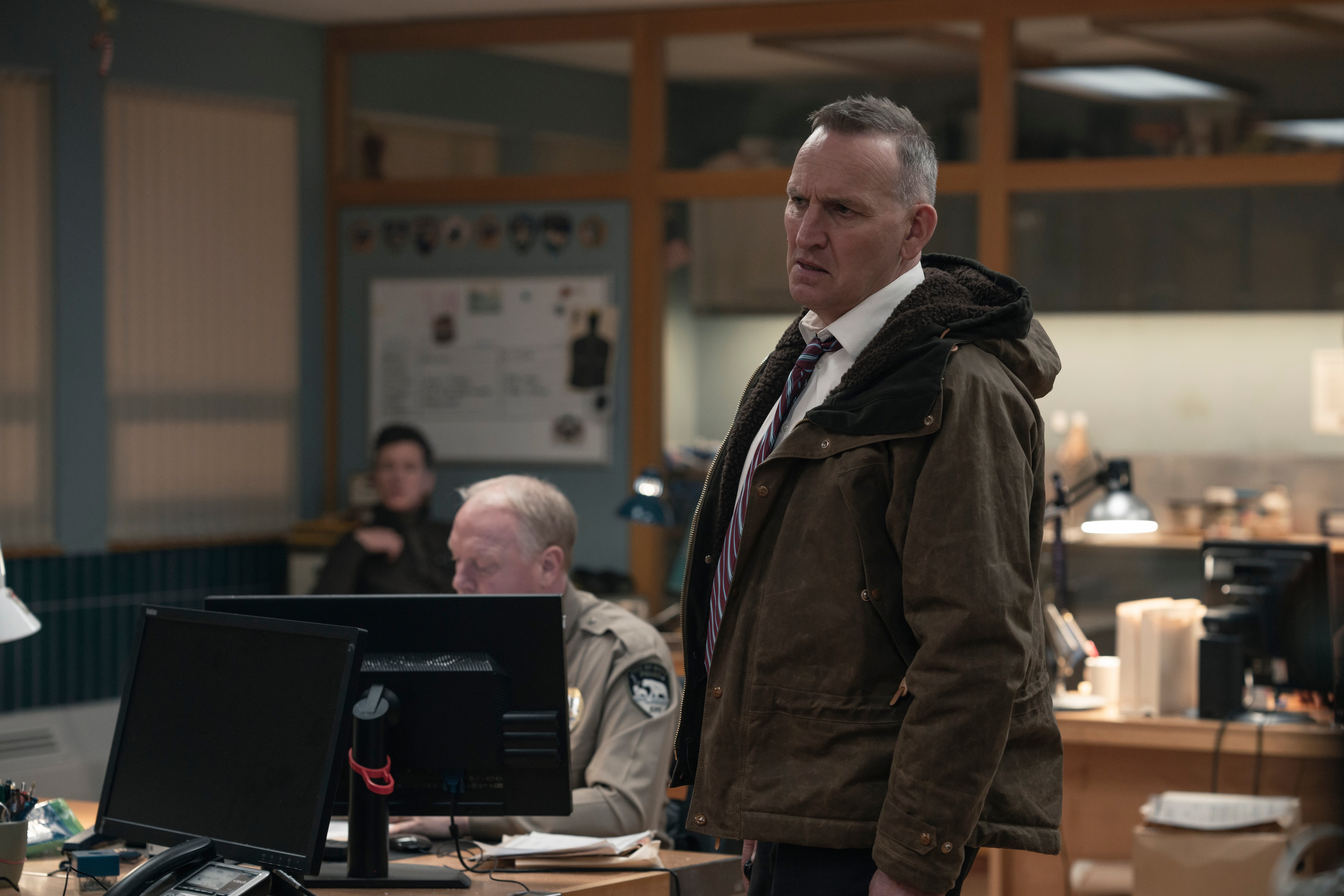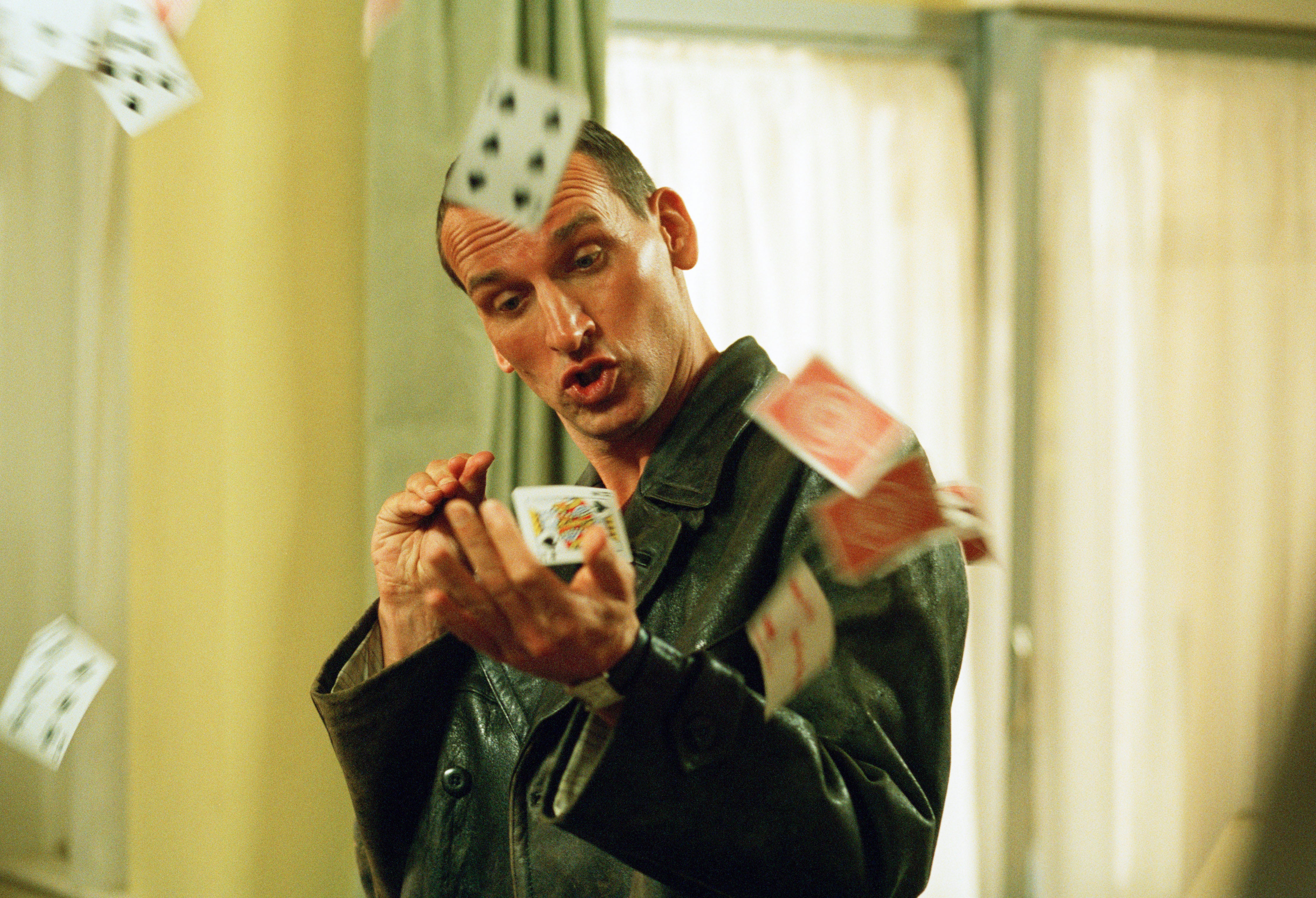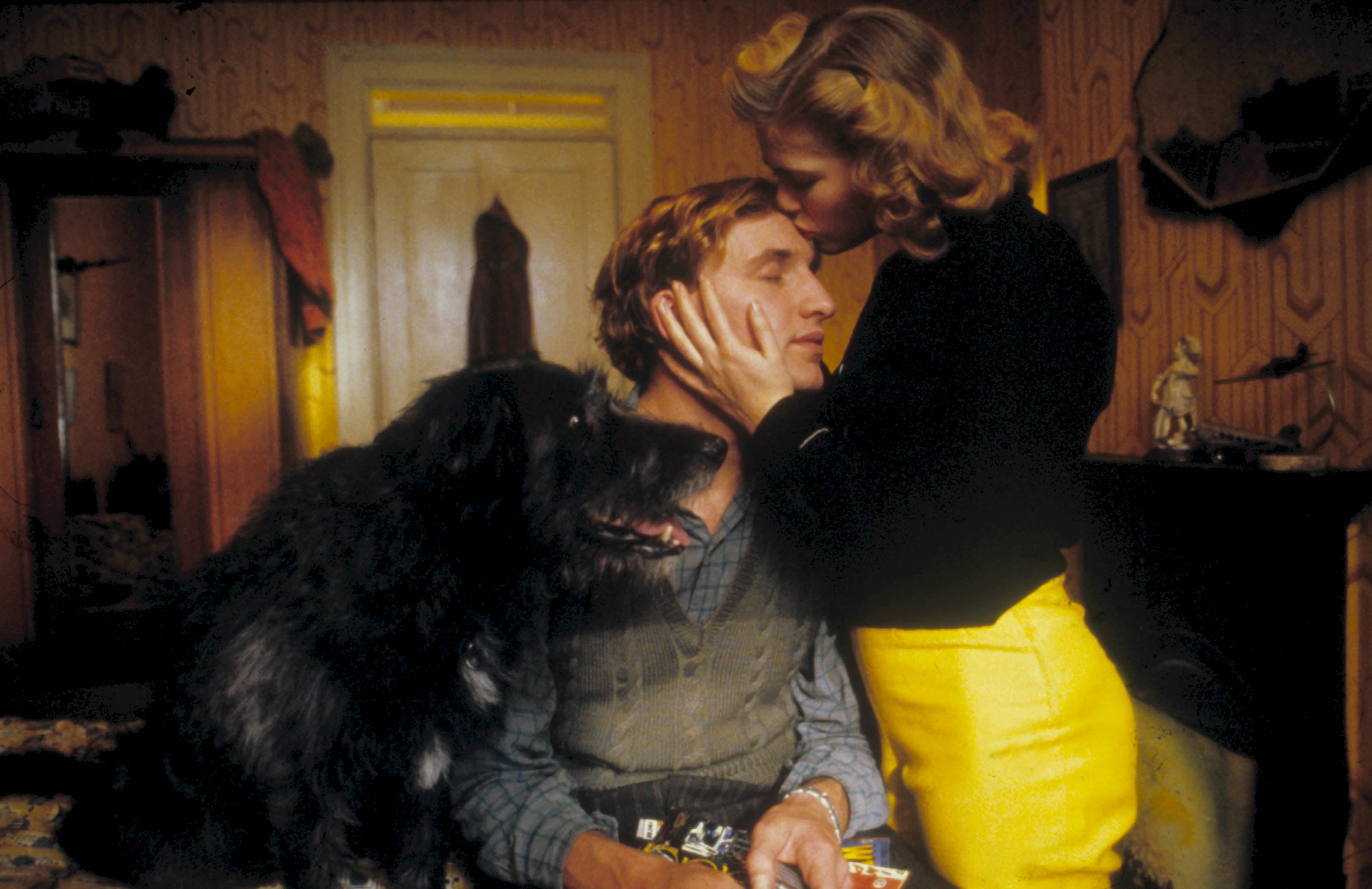Christopher Eccleston on the sex scene that still upsets him: ‘An A-list actress implied I was copping a feel’
The ‘Doctor Who’ star opens up to Helen Brown about feeling betrayed, why he took a part in ‘True Detective’, and how the networks should take note of the success of ‘Mr Bates vs The Post Office’


Your support helps us to tell the story
From reproductive rights to climate change to Big Tech, The Independent is on the ground when the story is developing. Whether it's investigating the financials of Elon Musk's pro-Trump PAC or producing our latest documentary, 'The A Word', which shines a light on the American women fighting for reproductive rights, we know how important it is to parse out the facts from the messaging.
At such a critical moment in US history, we need reporters on the ground. Your donation allows us to keep sending journalists to speak to both sides of the story.
The Independent is trusted by Americans across the entire political spectrum. And unlike many other quality news outlets, we choose not to lock Americans out of our reporting and analysis with paywalls. We believe quality journalism should be available to everyone, paid for by those who can afford it.
Your support makes all the difference.I’ve had imposter syndrome for most of my life and career,” says Christopher Eccleston. And as his arresting blue eyes lock onto the lens of his camera phone, I think I can feel that. Though he’s a warm, steady and thoughtful conversationalist, I’m reminded of the times I’ve felt fear, suspicion, uncertainty and rising panic in his face on screen.
That anxiety fed into the mounting dread he expressed in his 1991 breakout film Let Him Have It, in which he starred as Derek Bentley, who was hanged for murder in an infamous real-life miscarriage of justice; it prickled through the paranoia of his character in Shallow Grave (1994) and in the way he burned with anarchist intensity in Our Friends in the North (1996). It added urgency to his Bafta-winning turn as the reborn Christ in Russell T Davies’s The Second Coming (2003); a twist of angst to his ninth Doctor in Doctor Who (2005); and a wounded malevolence to his embodiment of Malekith the Accursed in Thor: The Dark World (2013).
Now, at 59, he’s bringing the same unstable edge to his latest role as an inscrutable, adulterous police boss in the fourth season of True Detective. The HBO franchise, whose 2014 opening season starred Matthew McConaughey and Woody Harrelson, is known for its sweaty hypermasculinity. But although there are linked themes, each season functions as an independent drama, and season four shifts the action from men flexing their muscles in the sunny American South to tough women yanking on their snow boots in the icy dark of the Alaskan north.
It stars Jodie Foster as Liz Danvers: the surly police chief of the small, impoverished town of Ennis. Her challenge is to understand why eight male scientists vanished from their polar research station and wound up naked and half-buried in the snow. Where your classic crime drama fetishises the half-naked bodies of murdered women, this one (written and directed by Issa López) sees tough older women stomping around the corpses of paunchy middle-aged men, which have frozen into a solid tangle of limbs, beards and defrosting genitals.
“It’s brilliant how this season flips gender roles,” says Eccleston, via Zoom from his London home. He’s in a tracksuit, just back from a run. “In the first episode you see both female detectives [Foster’s Danvers and Kali Reis’s Evangeline Navarro] coming to men for sex and then leaving. Both men are shown trying not to come, because they want to please the women, who are absolutely in charge.” He laughs. One of those male characters is his. He plays Danvers’ married lover and boss, and admits: “I’d never have taken such a small part if it wasn’t for Jodie. But all my scenes are with her, and she’s been a heroine of mine for many years.”
To be more accurate, 59-year-old Eccleston’s had a crush on 60-year-old Foster since they were both about 11 years old. Sitting in front of the TV in 1970s Salford, the young Eccleston was smitten by Foster – not as one of the characters she played, but as a dazzling, confident young actor in her own right. “I saw her interviewed on the set of Bugsy Malone when she was 11,” he recalls, “and I remember being stunned by her articulacy and her self-possession as well as her beauty. It was a total emotional, intellectual, artistic crush. I followed everything she did from then on.”
Their first meeting didn’t go to plan. “We got together to discuss our first sex scene and, trying to be oh-so-nonchalant, I leant back on what I thought was a sturdy table, and it broke in two. I’d only been in the room for two minutes, and there I was, laying on my back, surrounded by shards of wood... and the three of us – me, Jodie and Issa – just started laughing. We took a photograph in the debris, and we didn’t have to rehearse any more, because in laughing so hysterically we’d understood we had the same approach to things and it was plain sailing from there.”
Foster and Eccleston carried this humour – along with sudden bursts of ferocity – into their sex scenes. Her character twirls her thermal socks around her fingers in an arctic striptease. Was Eccleston nervous about getting it on with his childhood crush for the cameras?
“No, no, not at all,” he says. “I’ve done so many sex scenes over the years. But this was, I think, only my second time working on a show with an intimacy coordinator. Those are a wonderful innovation in the industry. Not just because it protects people, but to creatively decide how a scene should be played. If I were a writer, that would be very important to me – because the way people have sex is how they communicate.”

Watch Apple TV+ free for 7 days
New subscribers only. £8.99/mo. after free trial. Plan auto-renews until cancelled

Watch Apple TV+ free for 7 days
New subscribers only. £8.99/mo. after free trial. Plan auto-renews until cancelled

Eccleston says that he and Foster discussed “how we’d gone through the mill with sex scenes in the past, when you just had to fend for yourself”. Over the years, he’s come to realise he’s more vulnerable than he once thought. “As a bloke, as a young man, you walk onto the set and see the majority of people in the crew are male. Then there’s a beautiful woman who’s naked. So unless you are a complete a***hole, you just continually ask her: are you comfortable? Is there anything I can do?” But he says the intimacy coordinator told him: “I’m here to protect you too, Chris.” “I’d not thought about that. You don’t think that maybe somebody’s copping a look at you. You just don’t, not from a working-class northern British background...” He chuckles. “I was born in ’64, when men were really not the objects of desire as far as I knew.”
Has he never felt uncomfortable filming sex scenes? “Yes,” he replies, grimly. “I did a sex scene with an A-list actress – not Nicole Kidman, who was brilliant – and she implied, in front of the crew, that I was copping a feel. Because she didn’t like me.” His anger at the injustice is evident, although he concedes he was “fortunate that happened to me before the Harvey Weinstein stuff came to light, so I wasn’t put in the stocks for it. But I’ve never felt more betrayed by a fellow actor than I did that day.”
He pauses, then adds: “I have to say to you that I would sooner have put my hands in a food blender than copped a feel of that person. It was an abuse of power, what she did. I don’t think that would have happened with an intimacy coordinator on set. I could have been accused of all manner of things... that’s about what passes between actors, with trust and the abuse of it.”
But Eccleston’s a man who likes to walk around ideas and look for the cracks. Though he’s grateful for the support of the intimacy coordinators with whom he’s worked, he “can see where things could go wrong with them on set. It depends on the individual doing the coordinating, doesn’t it. That person is in a position of great trust around very sensitive areas. Film and TV sets run on rumour and Chinese whispers. If an intimacy coordinator wanted to run a little bit of interference, then that could be problematic. So for me, the issue is: how are intimacy coordinators trained? Where do they come from?”
In the past, Eccleston tells me, things have gone very wrong for him on set. He’s not happy when I ask him about filming Shallow Grave with Ewan McGregor and Kerry Fox. I’d read that Danny Boyle got the three actors to share a flat in an effort to get them “in the zone”. But what Eccleston recalls is that “the three actors didn’t get along. Danny was a younger man, and I think he encouraged that. I always find those kind of power games distasteful. I think actors are smart enough, and kind enough, to act hostility and paranoia without having to feel it. I hope the industry’s moved on from that kind of Method bollocks.”
I’ve been warned in advance not to ask about his time filming Doctor Who. For years, questions hung over his departure from the role after just one series. But more recently he’s explained that his relationship with the showrunner, the producer, and the co-producer “broke down irreparably during the first block of filming and it never recovered”. (In a recent Doctor Who panel conversation alongside former co-star Billie Piper, Eccleston suggested he would consider returning to the show if Russell T Davies, who was showrunner during his time as the Doctor and has now been reinstalled as show supremo, was sacked along with several others.)
He has spoken out about his discomfort with a culture in which he felt that the crew “could have been treated better... I always look to the director and the producer, because they’re the ones with the big stick. If a director treats a member of the crew badly and then comes to speak to me about my performance, I have no respect for them and I don’t listen to them, and that’s difficult.”

Eccleston’s sense of solidarity with the working conditions of the crew is part of his political identity. “As a child, I saw TV as overtly political,” he tells me. “It was what I saw in the work of Dennis Potter and Alan Bleasdale and Play for Today, so that is what I headed for.” He believes that “networks should take note of the huge viewing figures for Mr Bates vs The Post Office. Because British TV has always given a voice to those who didn’t have one. So when I did Hillsborough (1996), I felt I was making a contribution. That film prompted questions in the Commons, just as Mr Bates is prompting action today.”
Eccleston has also turned down roles that he feels patronise working-class people. He’s described his own supportive parents – his father Ronnie was a forklift truck driver and his mother Elsie a cleaner – as his “biggest break”, and tells me he’s “tired of seeing working-class parents portrayed as being vehemently against their kids going into the arts. What was that f***ing ballet film everyone went mad for?” Billy Elliot? “Yeah! I was offered a meeting to play the father. But I said I’m not going to do that, it’s offensive. It was a middle-class view of the working-class experience, made for the American market. F*** it!”
Although his childhood dream was to play in midfield for Manchester United, Eccleston decided to become an actor in his mid-teens and went on a touring amateur production of Macbeth aged 17. He tells me he got into drama school “just as [Margaret] Thatcher was starting to dismantle funding”. “I got into a school that was grant-assisted by the Inner London Education Authority thanks to Ken Livingstone. Salford council at that time provided a discretionary grant, because I have no academic qualifications. I’m not an academic, I’m a creative.”
Today, he sighs, acting is becoming “an academic pursuit. You need academic qualifications to get into drama school. It rules out anybody who had a poor or rudimentary education. You’re ruling out the Gary Oldmans. Add to that the price of a trip to the theatre today...” He admits that although he won rave reviews for his turn as Scrooge in the Old Vic’s production of A Christmas Carol this year, “You were talking £150 for some seats. A family could go on a week’s holiday for the cost of watching a two-hour play.”
I thought, is there something performative about my breakdown? Am I looking for attention?
Eccleston’s return to the stage helped him recover some of the “professional confidence” he lost during a breakdown in 2016 that saw him admitted to the Priory with anorexia and depression. His mental health collapsed while he was filming BBC drama The A Word, in which he plays the father of an autistic boy, at the same time as splitting from his wife Mishka, the mother of his two children (Albert and Esme, now 11 and 10).
In 2020, he told The Guardian that “the breakdown and hospitalisation changed my view of myself and existence. I really felt that I was going to die.” He had suicidal thoughts. He doesn’t want to go too deeply into it today, but does recall the distress he felt at the Priory in Manchester, “watching the teenage girls from the anorexia ward walking to and fro in groups with their drips. That was deeply, deeply shocking.” He also caught his reflection in a mirror and noticed he was walking like a mentally ill character in a play. He asked himself: “Is there something performative about my breakdown? Am I looking for attention? Your brain chemistry is so profoundly disordered that all things occur...”
He has said that his love for his children helped him resist his darker impulses, and today he’s most cheerful while talking about them. Although he can see the contemporary gender debates playing out in their conversations around the dinner table. “Esme is, quite rightly, very quick to highlight misogyny and feminist achievement,” he says. “It fills my heart with joy. But what I’ve noticed in the discussions is my son is very quick to trample on his gender. I had to take him aside and say: ‘Son, the people in front of you may have sinned, but you haven’t and you have nothing to be ashamed of.’ Because, as we know from the global picture, if mothers and fathers don’t have these conversations with young boys, they will gravitate towards hate when puberty kicks in. We don’t want our boys to grow up thinking they’re rapists.”
Eccleston also credits parenthood with making him a better actor. “Watching two human beings develop has been fascinating,” he says. “I’ve observed how serious their play is, and that’s essentially what I’m doing when I’m doing a new voice, a new accent. That, and an awareness of mortality, has freed me up.”

Jodie Foster recently found herself on the sharp end of Gen Z after she criticised the work ethic of some younger people on sets. Eccleston tells me he finds it “extraordinary” that her comments provoked such ire. “I think the Gen-Zers who attacked her need to listen to her story: playing a child prostitute at 11. Going to Yale and studying African literature way before BLM and MeToo. Gen Z can get caught up in the drama of the social changes sometimes, when they should be getting on with the work.”
Now that he’s finished True Detective, Eccleston is returning to campaigning. “I’m doing a show called The Guilty Innocent for Sky, moving into new territory for me as a factual presenter and interviewer.” Eccleston’s been interested in miscarriages of justice ever since filming Let Him Have It, and he’s keen to dig into some cold cases, including that of James Hanratty, who was hanged for murder in 1962.
Next month, Eccleston will turn 60 – but he tells me he hasn’t yet made plans to celebrate. “As a divorced man, a single father, my focus is on spending time with the kids. I’m very fortunate that I’ve got them that weekend, so I’ll see if they want to stay in or do a big party...” He sighs and laughs as he admits: “They’ll probably want a big party that I’ll have to organise. Exhausting!”
‘True Detective’ airs on Sky Atlantic in the UK on Monday nights at 9pm
Join our commenting forum
Join thought-provoking conversations, follow other Independent readers and see their replies
Comments